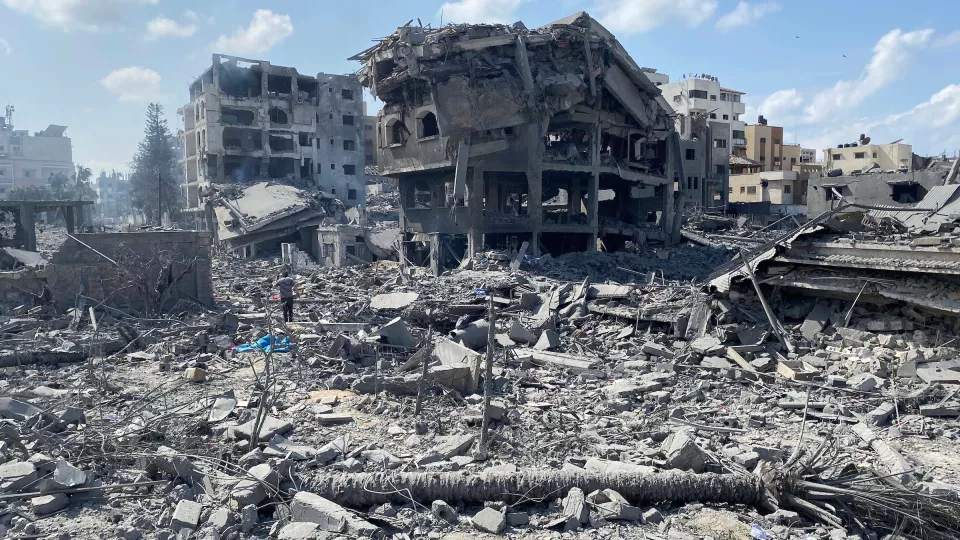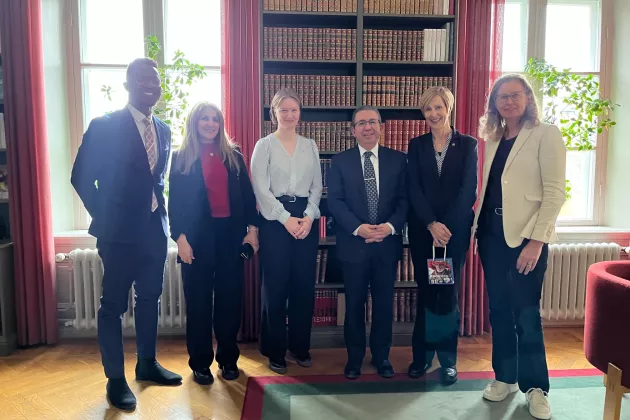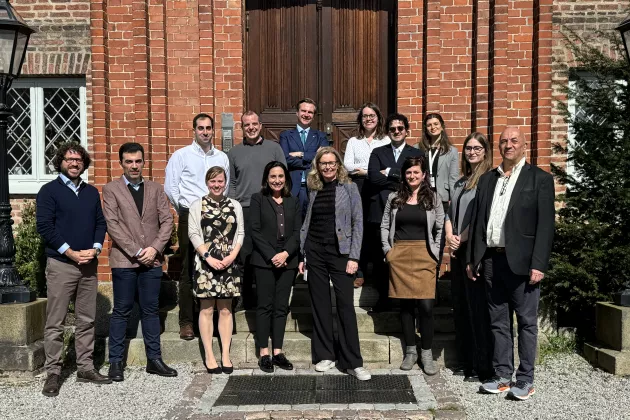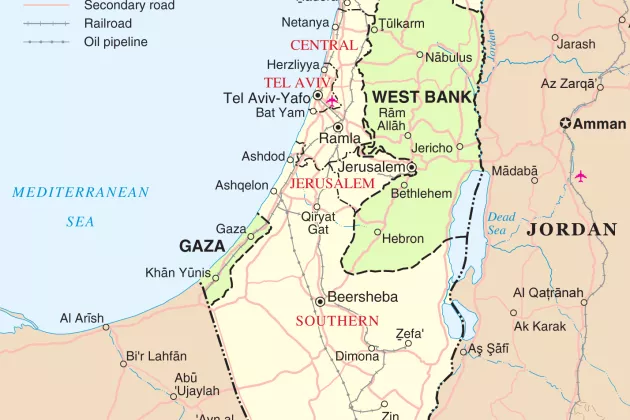What geopolitical consequences do you think the Gaza war will have?
– The gap between different realities of the current world order is widening. In the Global South, there is a widespread perception that the liberal world order only benefits the West; that democracy, free trade and human rights are only important when they benefit Western interests and that Israel should be supported at all costs. The lack of solidarity with the Palestinians is seen as showing "double standards" compared to Ukraine. This is exploited by Russia, which has close military-strategic cooperation with Iran and Syria, but also China, which has strong economic interests in the Gulf.
– But there is also a huge gap and polarization between people and political elites, both in the West and in the Middle East. We are currently seeing widespread political mobilization, with pro-Palestinian demonstrations spreading across Europe and the US. At the same time, we are seeing increased diplomatic engagement around a two-state solution. The EU's High Representative for Foreign Affairs and Security Policy, Josep Borell, has been highly critical of Israel's excessive use of force in Gaza, which has led to a large number of Palestinian civilians killed including women and children.
How does the war affect power relations in the Middle East?
– In the ongoing diplomatic efforts to bring about a ceasefire between Israel and Hamas and the release of the Israeli hostages, US Secretary of State Blinken is trying to coordinate regional actors, such as Qatar, Egypt, Saudi Arabia, the United Arab Emirates and Jordan. The aim is to jointly exert pressure on Israel and Hamas but it should also be seen as an attempt to create a political horizon, beyond ceasefires, for an alternative regional order in the Middle East. The idea is partly based on the Saudi peace initiative adopted by the Arab League in 2002. It stipulates an Israeli withdrawal from the territories occupied in 1967 to create a Palestinian state, as well as diplomatic recognition and regional integration of Israel.
– A recent game-changer was Israel's attack in Damascus and Iran's attack on Israel. Both countries had previously only attacked each other through proxies but now they attacked each other directly.
– Importantly, Israel received international and regional support to intercept the Iranian missiles before they reached Israel, not only from the US and France, but also from Jordan and several other states in the region. This experience is now being used as an incentive and pressure in the negotiations with Israel to bring about a ceasefire in Gaza.
The Centre for Advanced Middle Eastern Studies recently organized a workshop on the EU and Iran. How have EU relations with Iran changed?
– The EU has lost much of its diplomatic role and importance after the collapse of the agreement to regulate the Iranian nuclear program in 2018. We can see a growing conflict due to the extensive military-strategic cooperation between Iran and Russia, but also following Iran's attack on Israel, where the EU, together with the US, has chosen to increase sanctions against Iran.
– Iran sees itself as leading the regional resistance against Israel, but at the same time balances its relations with other regional actors and the Gulf Cooperation Council (GCC). It is also important to note that Saudi Arabia and Iran, long-time sworn enemies, re-established diplomatic relations last year following Chinese mediation. This signals a growing diplomatic influence of China in the region as an alternative to the US. The mediation can be seen as part of China's Global Security Initiative from 2023.
And in Israel, what long-term changes do you think the Gaza war will bring?
– The Israeli social contract has collapsed. For Israelis, October 7 came as a shock; the brutal and widespread attack carried out by Hamas inside Israel's borders was neither predicted nor deterred. Some 1 200 Israelis were killed and over 200 hostages, including children and elderly, were taken to Gaza. There is overwhelming disappointment and frustration in Israel about the government's failure to prioritize and succeed in getting the remaining Israeli hostages released despite widespread demonstrations in Israel.
– Israel's lack of political leadership has devastating consequences and the societal divide within the country is deep. Dissatisfaction with the Netanyahu government, which relies on support from the religious far right, was already very high before the Gaza war. At the same time, alternatives and an active political opposition are strikingly absent in Israel.
What are the options for resolving the Israel-Palestine conflict?
– A 'diplomatic window' is currently considered to exist. There are several international and regional initiatives to bring about a ceasefire, the release of Israeli hostages and increased emergency humanitarian aid. The needs of the Palestinian population of more than two million in Gaza are astronomical and urgent as all infrastructure has collapsed, hunger is widespread and most Palestinians have been displaced from their homes, which have been destroyed. This humanitarian catastrophe must end.
– But a ceasefire is not enough, there needs to be a sustainable long-term political horizon and political leadership that can shoulder responsibility. This is currently lacking on both sides. What we see is an increasing polarization of what is perceived as an existential conflict over survival. There is very little room for compromise here, which risks continuing the destructive spiral of violence. That is why the international community needs to scale up its ambitions and coordinate with regional actors to create alternatives to continued war and conflict.





